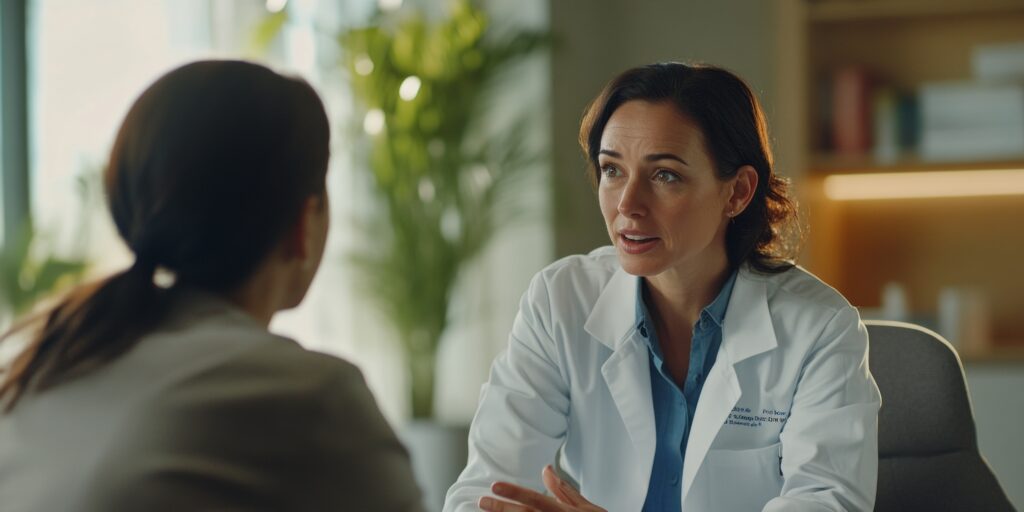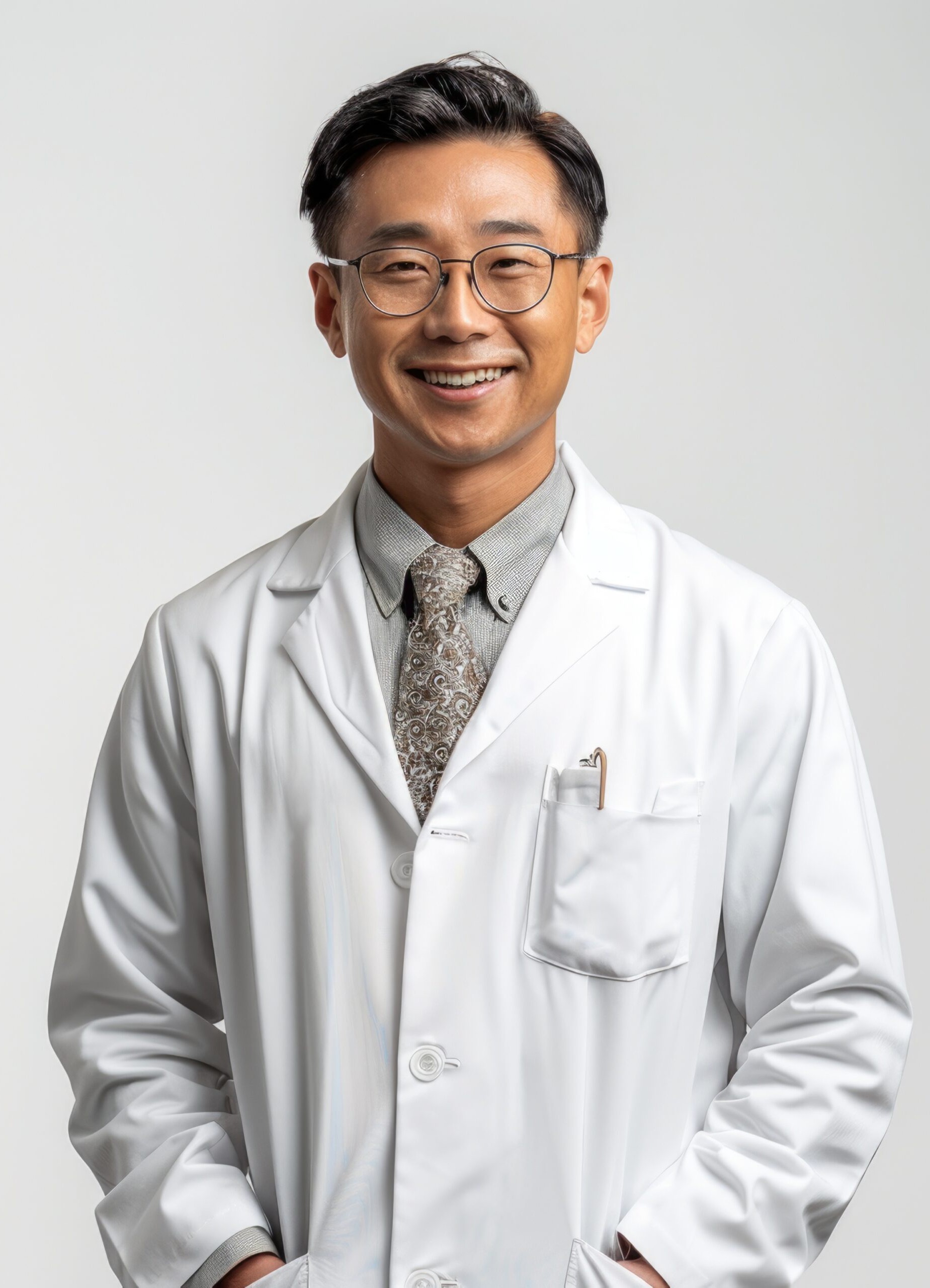What is an enteroscopy?
An enteroscopy is an endoscopic procedure during which a lengthy, narrow, flexible scope is inserted into the mouth and advanced to the jejunum (the second portion of the small intestine). The scope has a camera and light on the end of it and allows your provider to examine the lining of the esophagus, stomach, and small bowel. An enteroscopy might be suggested to determine the reason for gastrointestinal problems such as stomach pain, bleeding, or abnormal x-ray results. If it’s been suggested you get an enteroscopy, you can contact our team of knowledgeable GI doctors at Gastroenterology Associates for more information. Our providers frequently perform enteroscopy procedures for Baton Rouge, LA individuals and offer the care you need to enhance your gastrointestinal health.

Why is an enteroscopy performed?
An enteroscopy is often used to identify irregularities or conditions in the small bowel. Symptoms of such conditions could include:
- Concerning x-ray results
- Abnormal tumors or growths in the small bowel
- Unexplained bleeding
- Unexplained diarrhea
To an extent, other exam options are available depending on the overall reason for requiring to have the enteroscopy procedure in the first place. In many cases, enteroscopy is the best way to discover and manage concerns in the upper GI tract, especially if they involve the second portion of the small intestine or jejunum. However, the x-ray known as an upper GI/small bowel follow-through can evaluate your upper gastrointestinal tract, too. This is, however, just a diagnostic approach. Treating abnormalities will necessitate an enteroscopy and/or surgery.
What can I expect the day prior to my enteroscopy procedure?
Prior to your enteroscopy, you will be given pre-op instructions from your Gastroenterology Associates gastroenterologist about the essential steps you need to take before your enteroscopy. Most individuals will be cleared to eat like normal the day prior to the procedure. Patients will be told not to eat or drink anything after midnight, aside from medications. It is critical to adhere to the directive provided by your GI specialist. You will also receive additional information about your medications. In most instances, your medications can be continued per usual. However, in select circumstances, particularly in patients who take blood thinners and in diabetics, special instructions will be given.
What happens on the day of my enteroscopy?
You should arrive for your enteroscopy about 1 to 1.5 hours ahead of time. This ensures you’re able to fill out patient forms and prepare. You will be asked to switch into a hospital gown. An IV catheter will be inserted in your arm so that sedation can be given to you. You will be connected to equipment that will allow your provider to monitor your blood pressure, heart rate, pulse, breathing, oxygen levels, and more during and after the exam.
Once in the exam room, we’ll have you lie on your left side on our procedure bed. The sedation will then begin. Small amounts are given at a time to ensure you won’t have an adverse reaction to the medication and to give you only the amount you need. After the right level of sedation is reached, the endoscope will be gently inserted into your mouth. We will carefully advance the scope through the esophagus, stomach, and small intestine. A small amount of air will be injected through the scope into your gastrointestinal (GI) tract to help your provider see. Any remaining fluid in the upper GI tract is suctioned out through the scope. Depending on the findings of your exam, several procedures or treatments can be done at the time of your enteroscopy, like removal of polyps, biopsies, and control of bleeding. Once we’re done, air and remaining fluid are suctioned out via the scope. Depending on the findings, the procedure often takes somewhere between 15 – 45 minutes.
Once the exam is done, you will be transferred to a separate recovery room to be supervised while the sedation starts to wear off. The amount of sedation used during your exam and your individual reaction to the medication will dictate how quickly you come to, though many patients are alert enough to be discharged after about 45 – 60 minutes. You cannot drive for the remainder of the day; therefore, you will need to have someone take you home. You will also be instructed not to work, sign important papers, or do strenuous activities for the remainder of the day. Most patients are fine to eat and drink as normal after being released from the endoscopy center, however, specific instructions about activities, eating, and medications will be provided before discharge.
After the enteroscopy, your Gastroenterology Associates team will discuss the outcome of the procedure with you. Most people will struggle to remember the results of the exam because of the effects of the sedation, so it is recommended to have a family member join you when we go over these results. You will also go home with a typed report. You will be provided with any biopsy results after about seven days.
What are the risks of an enteroscopy?
Generally, an enteroscopy is a very safe process. Overall, complications occur in fewer than 1% of patients. The majority of problems are not fatal; however, if a problem arises, it could warrant hospitalization or surgery. Before your exam, we’ll make sure you understand all risks before having you sign a standard consent form. If any questions or concerns pop up, these can be talked through with your provider before your enteroscopy.
Medication reactions associated with sedation might occur. These can include allergic reactions, difficulty breathing, heart and blood pressure effects, and irritation of the vein used to give the medication. Bleeding can occur with removal of polyps, biopsies, and with dilating strictures. Additionally, bleeding which might require hospitalization or a blood transfusion, is possible but unlikely. A tear or laceration of the esophagus, stomach, or small intestine can occur. This may be recognized at the time of the exam, or it might not become apparent until hours later. In many cases, if perforation occurs, it will mean surgery and/or a hospital stay. This is uncommon, even when dilation is performed and biopsies are taken. It is imperative that you call our Baton Rouge, LA gastroenterology office if you experience symptoms such as bleeding, abdominal pain, or fever after your enteroscopy.
Similar to any other procedure, enteroscopy is not perfect. There is a small, acknowledged risk that abnormalities, such as malignancies, can be undetected during the exam. It is important to continue to follow up with your physician as recommended and keep them informed of any new or ongoing issues.

Better GI health
Enteroscopy FAQs
What should I avoid after my enteroscopy?
Post-enteroscopy, you should not eat or drink until your physician advises it’s safe to do so. Follow any medication instructions your physician provides. Additionally, avoid any heavy physical activities. Should you experience intense abdominal pain, persistent bleeding, or develop a fever, reach out to our office immediately.
Who should not undergo an enteroscopy?
Enteroscopy might not be suitable for individuals with specific medical conditions or risks. Those with severe heart or lung diseases, uncontrolled bleeding disorders, or recent heart attacks may face higher risks due to the sedation and procedure. Furthermore, individuals with certain anatomical issues or strictures in the digestive tract may also be advised against this procedure. It’s essential to discuss your medical history and any health concerns with your healthcare provider to determine if enteroscopy is the right choice for you.
What is the difference between an endoscopy and an enteroscopy
Both endoscopy and enteroscopy involve using a flexible tube with a camera, but they target different parts of the digestive tract. Endoscopy typically examines the upper gastrointestinal tract, including the esophagus, stomach, and duodenum. In contrast, enteroscopy is used to visualize the small intestine, which is deeper in the digestive system and more challenging to reach. Enteroscopy is often employed when other diagnostic tests like endoscopy or colonoscopy do not yield clear results or when there is a suspected issue, specifically in the small intestine.
